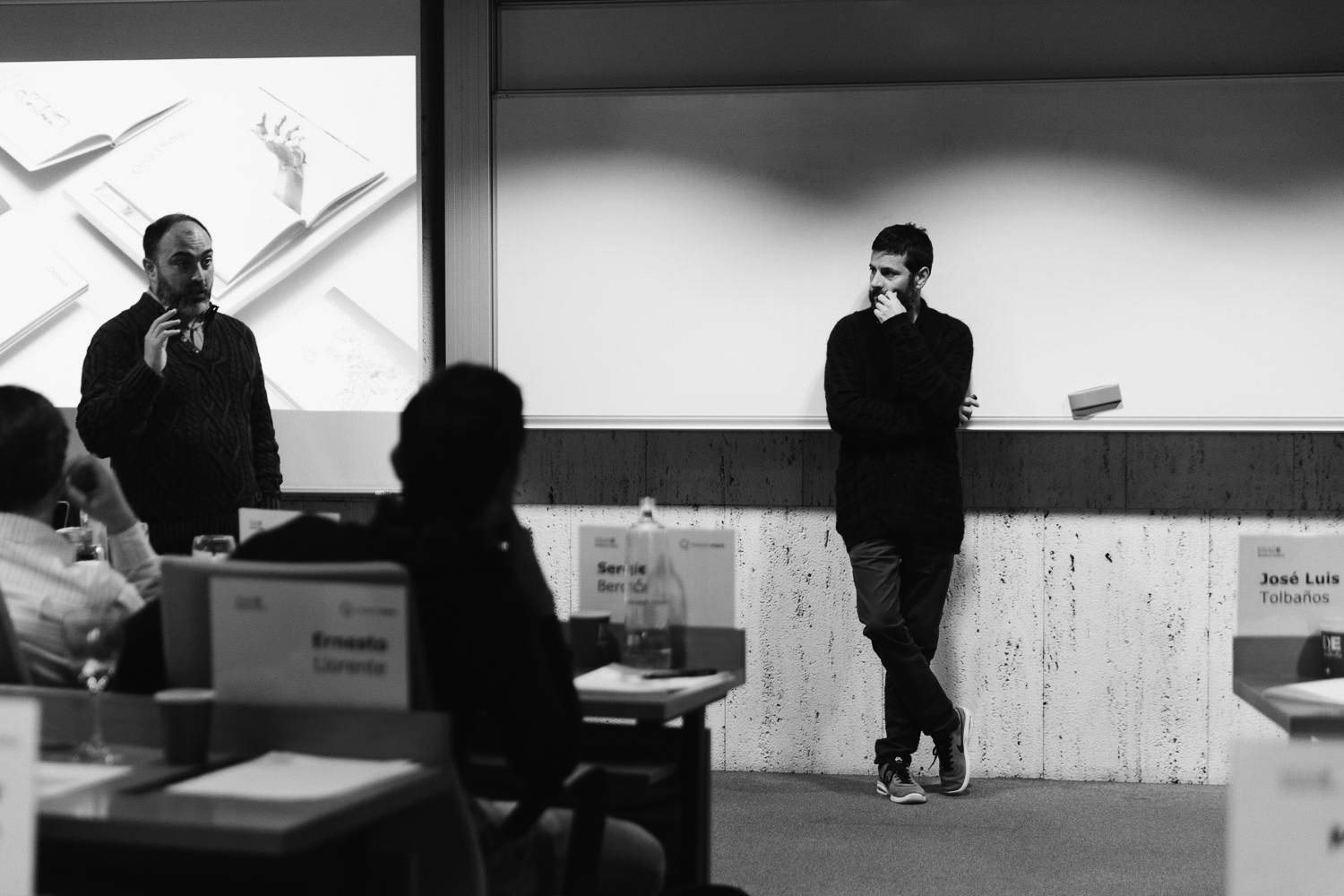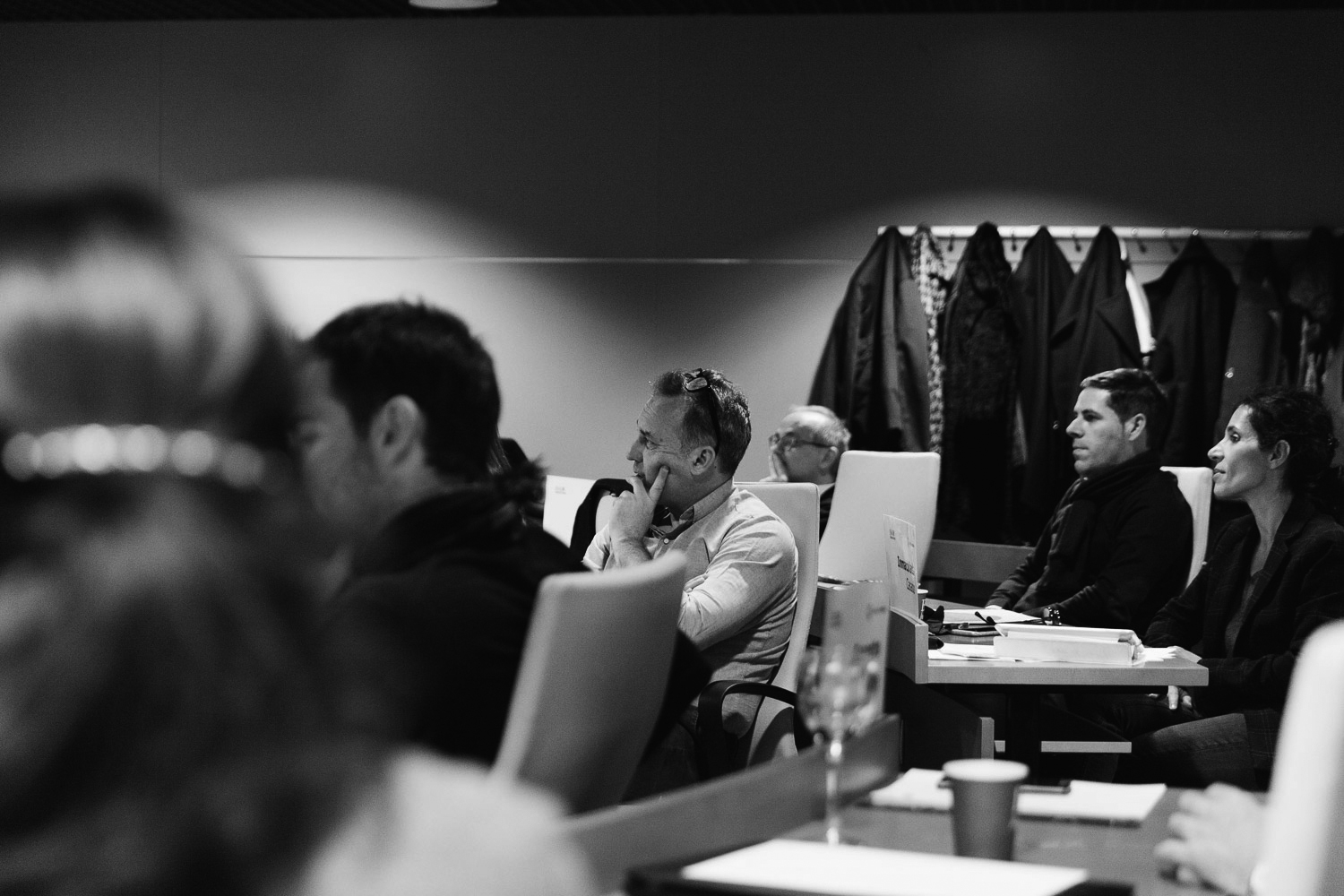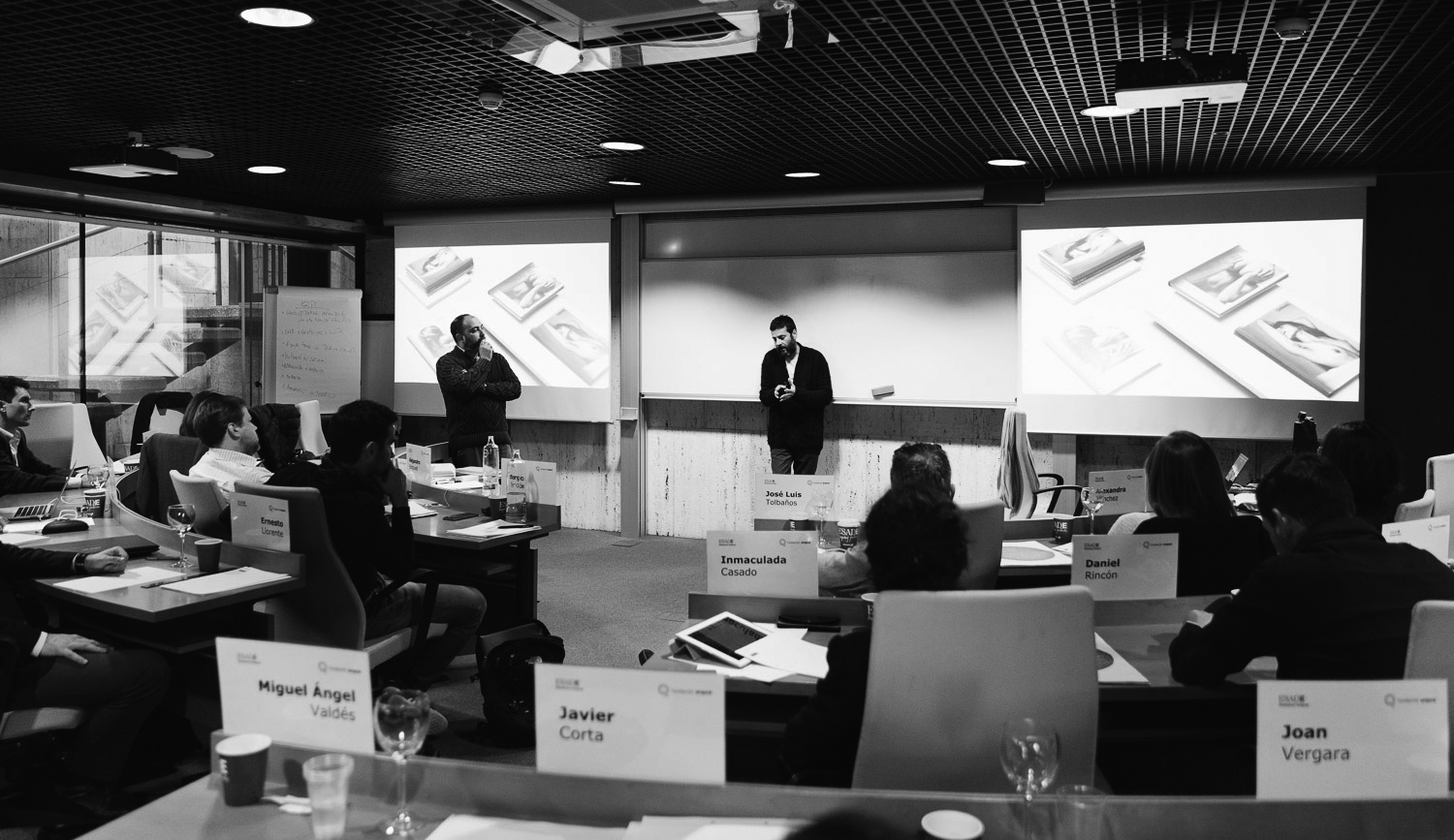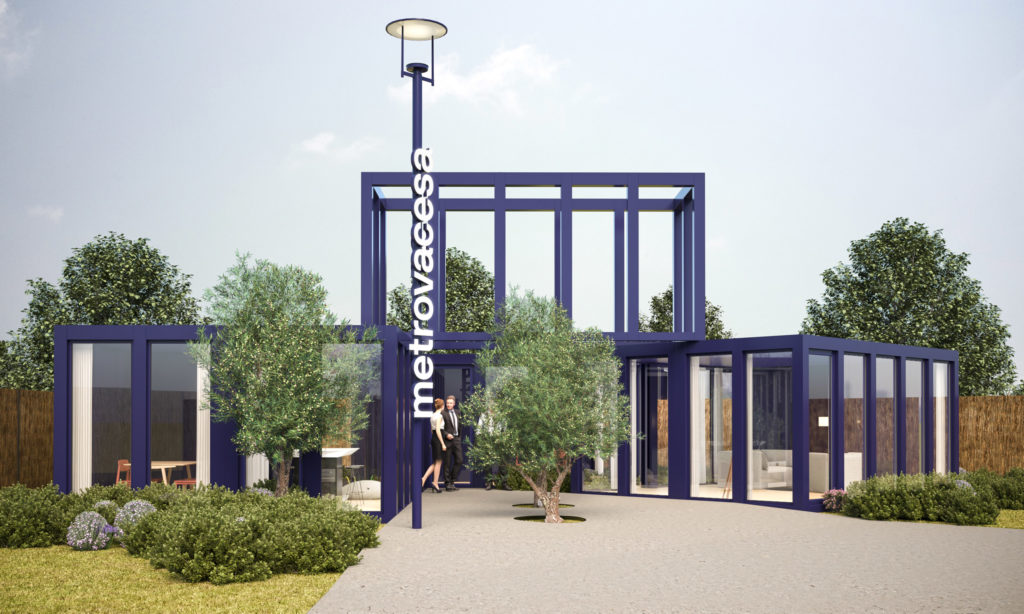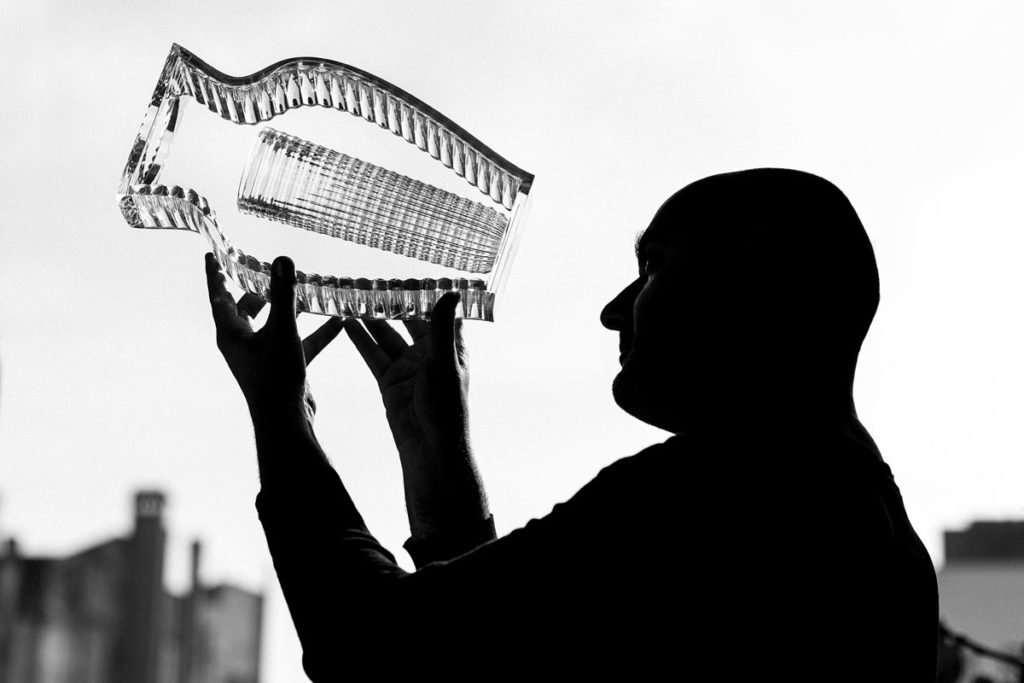Year: 2018
Tags: Brand Narrative, Branding, Education, Strategic Communication, Strategy and Design Thinking, Brand Journalism, Branding, Design Consultancy, Lecture, strategy
In a liquid society, static and traditional business plans no longer work. Our world is at the starting point of something new, so we need brands and businesses that are easily adaptable to changes and new audiences. Accordingly, the ESADE Business and Law School invited us to give an Executive Business masterclass on creative approaches towards the concept and development of a business plan, and why we’ve never planned on making one.
A distinct way of approaching business
At Folch we try to fully comprehend the context of a brand before changing its meaning. For the city of Barcelona, we were asked to help define the city as a brand, in order to alter foreign and local perceptions of the city as well as developing a new reputation. For CH Privée our approach translated itself into a ‘brand series’, using brand journalism as a base, and establishing the CH brand deeper within the digital community. With real estate company Metrovacesa, on the other hand, we guided them towards going public this 2018 by creating a strong identity and repositioning them in the market.
We approach business the other way around: instead of creating a business model, we focus on creating engagement with audiences. Only when a brand matures, we develop a different business model accordingly.
Rafa Martínez, Partner & Brand Strategist at Folch
Branding as a disruption
In the traditional model, the creation of a brand is based on a business plan: an initial definition, the finding of funds and the ultimate launch of the product or service into a specific market. For us, this approach never fully functioned, as we felt the most important element of a business was being overlooked. A modern-day product is defined by its audience, a brand has become an experience, and engagement and commitment from the client has become the key to success.
A brand has become more than just a product or a service. It’s a concept, a media platform reaching audiences that are just as easily interpretable, in turn, as different types of media. A brand therefore needs a seductive narrative of its own to be able to connect. Translating this into a business context, tools such as Brand Journalism, Brand Activism, Brand Series and Activation should be incorporporated into the conception of a brand.
As such, we offered the students of ESADE a new point of view, applied by major companies such as Google and Facebook and built on first defining a brand’s territory and mood, then correctly positioning the brand in order to capture the target audience. From this concept a brand is born, and it is the character of the brand which defines its business model, resulting in its alteration whenever the brand evolves into other, bigger dimensions.
Change of paradigm
This new way of looking at the concept of a brand allows for the creation of flexible and contemporary business models, embracing many audiences. Small sustainable projects are created with the aim of growing, and in their maturing they need freedom and flexibility to be able to adapt to challenges and means of innovation. With this shift in paradigm as a result of a more liquid society, we learned that a creative approach towards business is no longer a suggestion but a requirement for the healthy growth of a brand.
